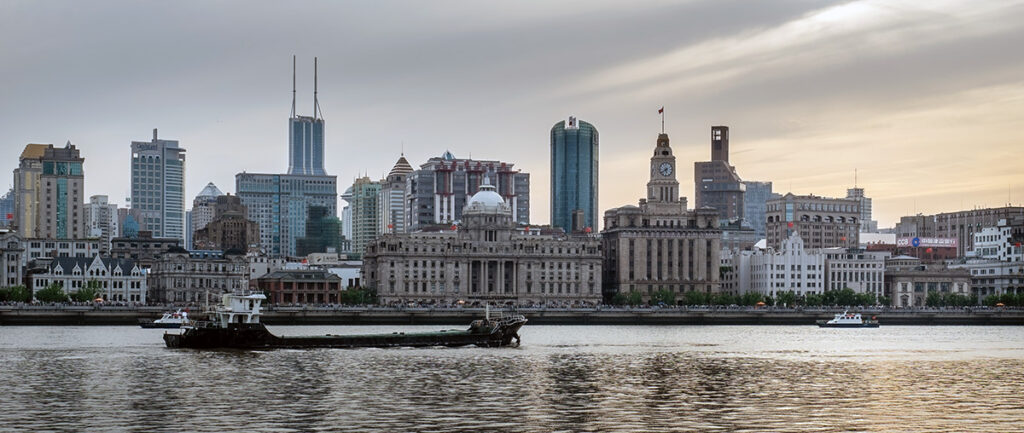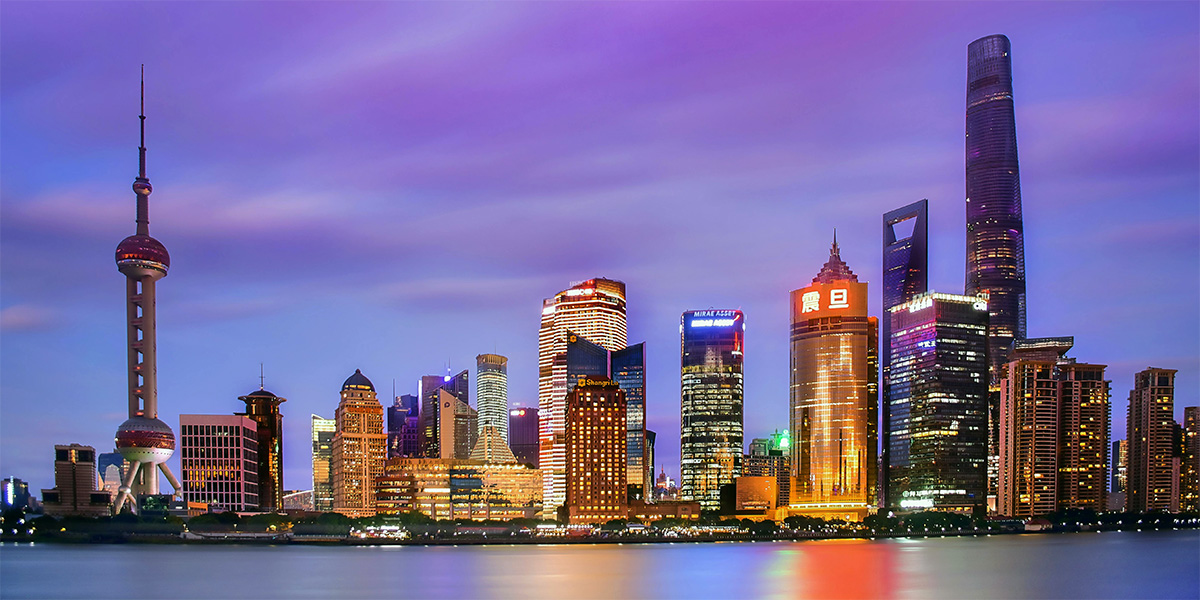The Parallel Universe that Threatens China
China Syndrome
Once-upon-a-time it was believed that the prosperity generated by an economy was linked to the measure of freedom a society enjoyed. The belief held that liberal free societies would enjoy a greater growth in prosperity than those ruled by authoritarians.
Then China came along and proved all that wrong: growth and affluence could be delivered by a totalitarian regime – and in spades.
Never before in human history did a country lift its people out of poverty faster than China did. At the time of the death of Mao Zedong in 1976, China’s per capita income amounted to a meagre $165 annually. After reformists outmanoeuvred the putschist Gang of Four and rose to power, a few months later, the country’s long-dormant economy began showing signs of life.
Whereas in the last year of Mao’s life, GDP had shrunk by over seven percent, in 1977 growth returned (+12.1%) and then exploded the next year (+23.2%). China hasn’t looked back since and now boasts a nominal GDP per capita of $13,136 and double that when purchasing power is considered.
Cats & Mice
Much of China’s remarkable success is owed to Richard Nixon whose surprise visit in 1972 planted the seed that would grow into the country’s opening up to the world. A few years later, the great reformer Deng Xiaoping would add yet another saying to a language already well provisioned with proverbs: ‘It doesn’t matter if a cat is black or white, as long as it catches mice’. Most Chinese took this as a cue to unshackle their repressed but formidable entrepreneurial spirit – working a miracle as they went about their business.

Though the reformers had no intention to renounce communism, they suspended the application of their ideology which was limited to a a few meaningless words, slogans, and speeches that all Chinese were free, and even encouraged, to ignore. Thus a nominally communist state succeeded far beyond any expectations by ditching the red rulebook.
Others, notably Vietnam, took note and successfully followed China’s cue. For many years, the liberals kept insisting that the absence of political and individual freedom would eventually derail the experiment. They foresaw protests once people began to realise that their silence and submission had been ‘bought’ with increased prosperity. The Tiananmen Square protests of 1989 seemed to vindicate the liberals’ view.
However, after the People’s Liberation Army forcefully intervened and left many hundreds dead, calm returned and hasn’t been noticeably disturbed since. The liberal belief in the power of freedom to bring prosperity was thoroughly disproved and duly disappeared.
Now that doctrine is preparing a comeback.
Back to the Future
President Xi Jinping of China, in power since 2013, has taken his country back to the days of the personality cult, make-believe numbers and statistics, censorship, and the selective application of law. President Jinping has also clamped down on many individual freedoms the Chinese were just growing accustomed to.
Social media and internet use are painstakingly monitored for signs of dissidence, many Western media outlets have been banned, and a high-tech surveillance state was erected on the premise that everyone is guilty unless proved innocent.
Access to information has suffered as a result; not just to the Chinese, but to scholars and businesspeople as well. Economic data awkward or embarrassing to the government is routinely suppressed or massaged – in official parlance ‘improved and optimised’ – to align with the official discourse.

Last month, Chinese stock exchanges stopped the release data on incoming overseas investments. Balance of payment data has become so jumbled that nobody, not even the US Treasury Department, can make sense of it. The official statistics show an inexplicable hole of about $230 billion. No-one in Beijing cares to explain.
Presidential aides recently urged officials, analysts, and journalists to ‘promote the bright prospects of China’s economy’. Earlier, the Ministry of State Security, home of China’s intelligence agencies and the secret police, cautioned people to be ‘wary of those who denigrate the economy’.
No Comment
Reports of economists and journalists who failed to toe the line are routinely taken down. Authorities acted quickly to remove an editorial published online by Beijing-based business news provider Caixin Media. The article reminded readers that during the Cultural Revolution of the 1960s and 1970s, governmental officials insisted that ‘everything was fine’ whilst millions were starving to death. The editorial urged its readers to ‘seek truth from facts’, quoting an ancient aphorism.
Li Xunlei, an economist at a state-owned securities company, got into trouble for highlighting a study conducted by Beijing Normal University which showed that some 960 million people, seventy percent of the population, had to make ends meet on barely $280 per month. Both the study and the economist were taken offline.
China’s economy is stumbling. Growth rates have more than halved, the property market is sagging, stock markets are down, bankruptcies are up, and foreign investors are pulling out significant volumes of cash – almost $15 billion in Q2 2024. The time when anything remotely related to China attracted vast sums of money has ended. In fact, most US and European corporates have declared China ‘uninvestable’ because of unfair and unpredictable policymaking.
The government has responded to these and other troubling developments by injecting yet more cash into the economy – and by suppressing any fact it deems inconvenient or out of sync with the approved narrative.
Freedom House, the US foundation that tracks freedom around the world, ranks China last for internet freedom amongst seventy nations. The country has held that position for the last nine years.
Parallel Universe
President Jinping and his cabinet of pliable sycophants show disconcerting signs of dwelling in a parallel universe, detached from reality. Deleting unwelcome data hardly inspires confidence amongst consumers and businesspeople. In fact, it accomplished the exact opposite by casting suspicion on any data the government does release.
At this year’s World Economic Forum in Davos, Switzerland, premier Li Qiang was met with scepticism when he assured participants that China’s GDP had grown by 5.2% in 2023. In his usual upbeat way, Mr Qiang continued to extoll the many accomplishments of his country. His message to the sceptics in the audience was that they simply failed to see “the bigger picture and grasp what is truly going on.”
Trumpeting positive hyperbole does not equate a policy agenda. It used to be that those at the top manipulating the levers of power received the truth of the goings-on in the country as ‘neican’ or internal reference, not meant for publication but crucial to the setting of policy. These ‘references’ kept government grounded in reality – and away from wishful thinking and delusion.
However, the Jinping administration seems to have done away with references, opting instead to double down on surveillance as a means to control not just the population but also business and the wider economy.
Without the unimpeded flow of truthful information, no capitalist economy – which is what China has – can function. Absent reliable data, the efficient and timely allocation of funds and material resources becomes impossible. Policymaking turns into an exercise in conjecture, eventually and inevitably leading to the monumental disorganisation and wastefulness that characterised the erstwhile Soviet economy.
The above constitutes the essence of the argument of liberals who do not believe prosperity can be attained through authoritarianism. They may yet be vindicated.
Resistance
Adding to the troubles facing the Chinese economy is the increased resistance the country meets elsewhere in the world. Its dumping practices are not appreciated. Access to state-of-the-art technology has been restricted and export controls tightened. Chinese takeovers and corporate acquisitions in Europe and North America are being discouraged, investigated, and often rejected outright.
For the Chinese leadership, such ‘unfriendly acts’ merely seek to prevent their country from taking up its rightful place in the world. However China does not help itself by aggressively encroaching on its neighbours, claiming sovereignty over distant seas, dispatching uncouth diplomats to foreign capitals, pushing subsidised products onto global markets, turning a blind eye to exports of chemicals to drug cartels, and helping its latest BFF (best friend forever) Vladimir Putin sustain his assault on Ukraine, in addition to aiding and abetting ‘rocket man’ next door.
In fact, there is much wrong with China; not just domestically, but internationally as well. These may just be the growing pains of a suddenly inflated world power trying to find its place and explore its role; or they may point to deeper issues such as a failure to fully understand the requirements that can fuel continued economic growth and societal development.
In essence, president Jinping and his team feel insecure and seem quite afraid to relinquish power lest events get of of (their) hand. The sentiment is unlikely to improve as the economy tanks. This will only see the Jinping clique descend deeper into delusion.
Cover photo: The Shanghai Bund’s skyline in 2023.
Photo credits
- © 2023 Photo present-day Shanghai Bund by Zhang Kaiyv
- © 2015 Photo Shanghai Bund in 2015 by Emell
- Photo Shanghai Bund in 1930 public domain


